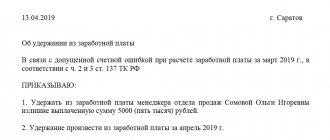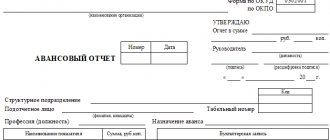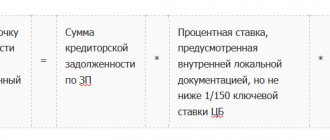05.07.2019
0
86
5 minutes.
Knowledge of the rights and obligations to the state saves the citizen part of his income and allows him to receive social assistance. You just need to apply for the required deductions in a timely manner and transfer the salary tax. The article describes in detail what benefits citizens of the Russian Federation can count on.
Payroll taxes
Official employment implies regular payment of taxes on income. The sending of funds is carried out by a tax agent, who is usually the employer. Part of the amount is collected from the employee. The amount of the balance depends on the salary, but is charged to the organization.
Basic deductions
An employee's income is considered to be salary, bonuses, and other monetary incentives. Income tax of 13 percent of salary is deducted from the employee's funds. The citizen will receive the remainder after deduction.
In addition to personal income tax, there are mandatory contributions to state funds. Interest is taken from the employee’s income, but is paid from the organization’s budget. These funds are necessary for the formation of a pension, social benefits, and the possibility of receiving free medical care.
What percentage of the salary does the employer give?
- 22% to the Pension Fund (PFR);
- 2.9% to the Social Insurance Fund (SIF);
- 5.1% to the Compulsory Health Insurance Fund (FFOMS);
- from 0.2% for insurance against occupational injuries and illnesses.
The 0.2% rate is increased for work in enterprises with harmful or dangerous working conditions.
Where does 13 percent of your salary go?
The employer transfers the funds withheld from subordinates to the tax service department to which the organization is attached. The proceeds go to the disposal of government agencies and are used to improve infrastructure. Deductions from citizens' salaries go to the salaries of employees of clinics, public utilities, schools, and other government institutions.
About tax
Tax base and personal income tax rate
The main tax levied on wages is personal income tax (or, as it is also called, income tax).
Tax base (income subject to taxation). The tax is levied on literally all income: for example, wages paid for work, a percentage of winnings or dividends. But there are also times when income is not taxed.
These include:
- sick pay;
- child care benefits;
- other types of preferential and compensation charges.
Tax rate. It differs for different categories of citizens, but for the majority of residents it is customary to charge 13% of their income. If resident status is not assigned, then this percentage increases.
To obtain this status, you must stay on the territory of the Russian Federation for at least 183 days annually, while the right of non-stay is retained, but for no more than six months (they can be spent on rest, study, etc.).
To calculate what net salary you will receive, it is recommended to do the following: subtract 13 percent from your estimated income. This will be pure income that you can count on.
Tax deduction
The state provides citizens with a personal income tax benefit - a tax deduction. Each case has its own amount. There are 2 ways to exercise this right.
- Reducing the base - the employee's income - from which 13% is withheld. The deduction is explained by the employee’s belonging to preferential categories of citizens and is made regularly. If personal income tax is transferred by the employer, the subordinate should provide management with documents confirming the right to a reduced tax base.
- Refund of part of taxes already transferred. The deduction is explained by the citizen’s one-time expenses associated with the purchase of property; treatment or tuition fees for yourself or a close relative.
Attention! The law sets limits on the amount of deductions. The limit depends on the benefit case and the total income of the citizen.
Deductions are divided into groups:
- standard;
- social;
- property;
- investment;
- professional.
The first is due to citizens as belonging to a preferential category. The remaining types are designed to cover part of the costs of government-promoted areas. Usually standard, social or property is used. Other options are for companies and entrepreneurs.
Social is based on:
- education;
- treatment and purchase of medicines;
- charity;
- pension provision from a non-state insurance fund.
Advice! You can receive a social deduction for the entire year by submitting a declaration to the inspectorate at your place of residence. If an employee needs to use the right immediately, he contacts the employer with a notification from the tax authority.
Who is entitled to tax deductions from personal income tax?
Some groups of citizens are entitled to permanent or long-term receipt of this benefit. To implement it, it is enough to provide management with proof of entitlement.
A deduction of 3,000 rubles for each month of the tax period is due:
- Citizens exposed to radiation during testing and liquidation of consequences of accidents at nuclear power plants.
- Military personnel who become disabled while on duty.
500 rubles deduction is received by:
- participants of the Great Patriotic War;
- disabled since childhood;
- disabled people of groups 1 and 2;
- some groups of citizens engaged in activities hazardous to health.
Important information! If an employee belongs to several groups at once, no addition occurs; when calculating personal income tax, the larger of the required deduction amounts is used.
Natural or adoptive parents are entitled to deductions for children. 1400 for the 1st and 2nd child, 3000 for the 3rd and each subsequent child. The right is valid until the age of 18 years or 24 years of age, subject to full-time study.
A deduction of 12,000 is given to the parents of a disabled child:
- up to 18 years old;
- up to 24 years of age if he is a full-time student and has a 1st or 2nd group of disability.
It is important to know! For guardians and adoptive parents, the deduction amount has been reduced to 6,000 rubles. The amount allocated for a disabled child does not replace the payment for the number of children. Parents can receive both deductions at once.
Mother and father can use the benefit at the same time. If the parents are divorced and one of them pays child support, payroll taxes can still be reduced by the child deduction. If one of them died, was declared missing, or refused his part, the second may receive double the amount.
Where and for what do taxes go in the state: distribution of funds
Each tax option has its own distribution. For example, personal income tax, calculated from a citizen’s salary, goes to the regional budget in the form of 85% of the total collection amount. 15% is transferred to the local municipality, where distribution is made according to needs. According to the law, the last funds are used to maintain infrastructure, repair public facilities, as well as public order and safety.
Medical insurance, pension and social security funds collect funds in one place, after which they are distributed according to the necessary costs for the specified needs.
The federal budget is replenished through the full collection of VAT. All funds are distributed annually to a number of industries. Among them:
- police and government agencies of similar types;
- government apparatus;
- military and national defense;
- education and its programs;
- science and all research and development;
- similar industries that are important in the activities of the state.
Where do taxes go?
Taxation is necessary for the implementation of all government programs, including social ones. It turns out that the citizen artificially invests the given income in improving his life and the life of society.
The entire structure of the distribution of funds is carried out through the influx of money into the budget, from where deductions are made to each area according to the plan. An example of a plan is the state budget, which is project documentation adopted by the government as the main act determining economic development for the required period (usually a year). The project has several parts, in particular open and closed.
The open part considers expenses for various spheres of activity and life of society, that is, it is possible to conduct an analysis to improve or worsen the lives of citizens by changing the level of wages and social security.
Read also: Student leave
The closed part includes defense spending and everything related to security and military spending. Typically, the closed part exceeds the remaining costs that are budgeted.
Important! When expenses increase and budget revenues decrease, a state deficit of funds arises, that is, a public debt is formed. An example would be the worsening economic situation and the necessary increase in VAT to 20%. This point is associated with the need to fill the budget by increasing costs for various programs.
When a deficit occurs, federal subsidies to the regions are reduced and costs in the form of subsidies for repaying the national debt increase. It is this point, coupled with the fact that taxation of citizens is one of the main incomes, that leads to an increase in the tax base of deductions and a tightening of tax legislation, in particular in case of violations.
It is worth considering that budget distribution is carried out on the basis of planned economic indicators, including inflation, prices for various minerals, which are budget revenues, and similar options.
Here's how that money will be distributed in 2021
All contributions received from the taxpayer must be included in the budget. An example would be work in Moscow and the corresponding deductions.
The official monthly salary is 30,000 rubles. There are no tax deductions; for this reason, a citizen will receive 26,100 rubles in hand, and for the year the employer will transfer 46,800 rubles to the budget. Accordingly, a table can be generated based on one taxpayer.
| Sphere | Example | Single annual deductions from one payer and distribution | Total required budget for the specified area, million |
| Transport | Repair work and replacement of escalators, creation of a route network | 8136.9 | 288 473.5 |
| Social | Various social programs, as well as additional assistance | 7805.3 | 276 717.1 |
| Educational | Art exhibitions, graduations, Olympics | 7746.9 | 274 647.1 |
| Housing and communal services | Additional overhaul, repair and renewal of communications, road cleaning, including snow removal | 6705.3 | 237 718 |
| Medical | Carrying out free examinations, vaccinations and improving free emergency care | 5143.5 | 182 349.8 |
| Economic and agricultural | Fairs, support for farms and enterprises | 5089 | 180 416.4 |
| Work of government and officials | Salaries and insurance of the Moscow state apparatus | 2693.8 | 95 503.1 |
| Cultural | Carrying out cultural events and supporting museums, theaters, libraries | 1321.6 | 46 854.3 |
| Sports | Holding competitions and mass sporting events | 834.9 | 29 600.1 |
| Ministry of Emergency Situations, police and similar structures | Fighting emergencies, fires and other incidents | 581 | 20 596.5 |
| mass media | Creation of regional broadcast channels | 328.8 | 11 658.3 |
| Ecological | Creation of metal collection points and holding mass landscaping events | 210.2 | 7 451.3 |
| Defense | Polygon content | 26.3 | 933 |
| Subsidized | Providing the necessary funds to local budgets | 21.8 | 774.4 |
Another area is the issuance of money to the federal budget from the region, that is, 154.5 rubles (total amount of 5476.6 million) are transferred to the federal authorities.
What payments are not subject to personal income tax?
The Tax Code of the Russian Federation identifies several types of income that do not require payment of taxes. The citizen receives this money in full; it is not taken into account when calculating profits.
According to Article 217 of the Tax Code of the Russian Federation, taxes are not withheld from the following types of income.
- State benefits, except in the case of temporary disability.
- Pensions and additional payments to them.
- Payments related to the birth or adoption of a child.
- Compensations assigned by the state and local governments. This group includes compensation for damage to health, costs of housing, food, fuel, equipment, relocation, and business trips.
- Income received as a result of volunteer activities.
- Reward for donation.
- Alimony of any category.
- Grants and awards from the state.
- Scholarships.
- Profit from hunting, farming, gardening.
The list summarizes the information contained in the Tax Code of the Russian Federation. For some of the listed areas there are details and nuances. For more complete data, it is recommended to refer to the Tax Code of the Russian Federation.
The procedure for making calculations
The following sections explain how to calculate the 13 percent of your salary after the deduction. Separately mentioned are restrictions on benefits available to citizens.
Formulas
How to calculate 13 percent of the salary is indicated in Article 226 of the Tax Code of the Russian Federation. According to this law, tax is charged on all profits from the beginning of the year. The calculation is made as follows.
- Allowed deductions are subtracted from the amount of income subject to personal income tax from the beginning of the year.
- The result obtained by the first action is multiplied by 0.13.
- The amount of personal income tax transferred for previous months is subtracted from the result of the second point.
The final figure is the income tax for the current month. Please note: the resulting value must be rounded to the nearest whole number of rubles. Less than 50 kopecks can be discarded; 50 or more are considered a ruble.
Restrictions
The law sets maximum deduction amounts per year. 120,000 is the limit for treatment and training. Children's education should account for no more than 50,000. Please note: not all types of medical services are included in this category. There is a list of particularly expensive procedures that are not subject to the 120,000 limit.
Attention! Payments for children are limited to the parents' annual income. If the profit exceeds 350,000 rubles, the right to deduction ceases to apply until the beginning of the next year.
Who doesn't need to pay tax
Income tax is not withheld from certain types of payments:
- from pensions - these are social benefits;
- from sick leave;
- when calculating maternity benefits;
- when a woman is on maternity leave;
- from alimony.
If a citizen is not employed and no entries are kept for him in the work book, then there will be no income tax withholding either. At the same time, funds for insurance will not be transferred to the Social Insurance Fund, and the period of work will not be included in his work experience.






